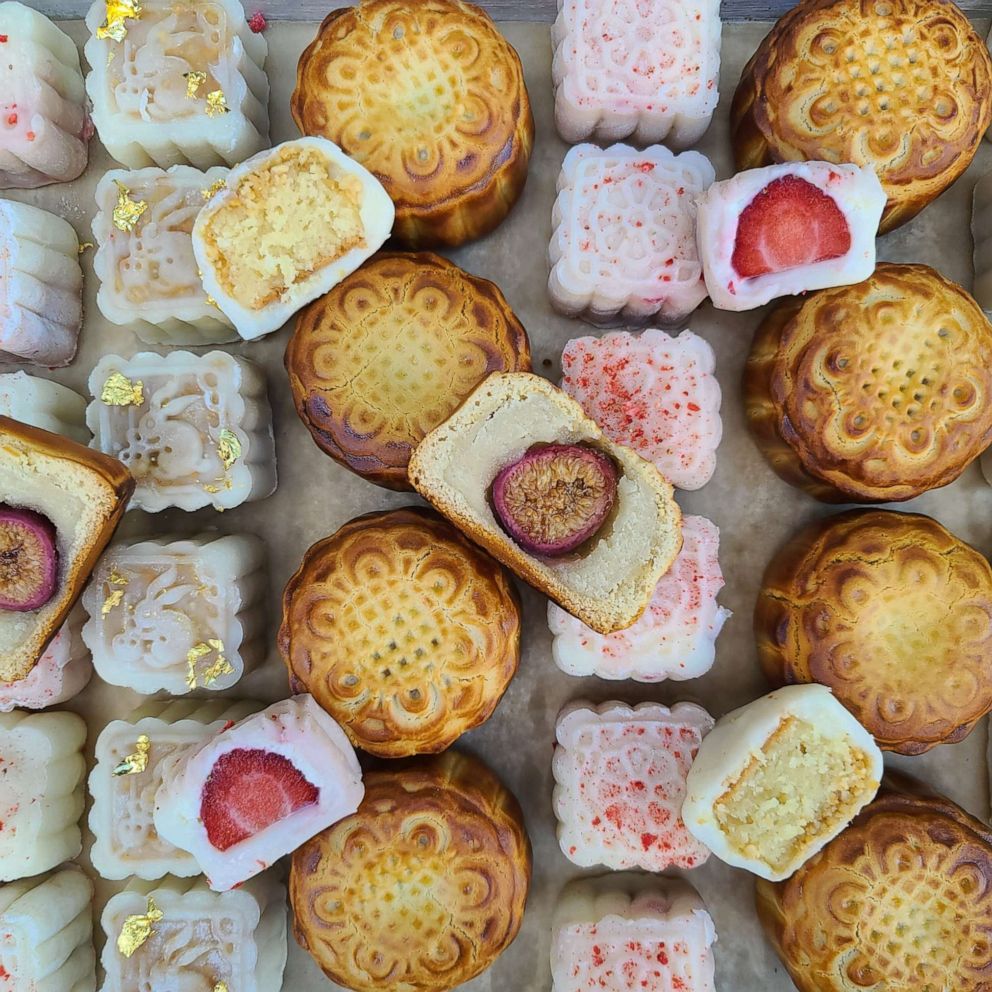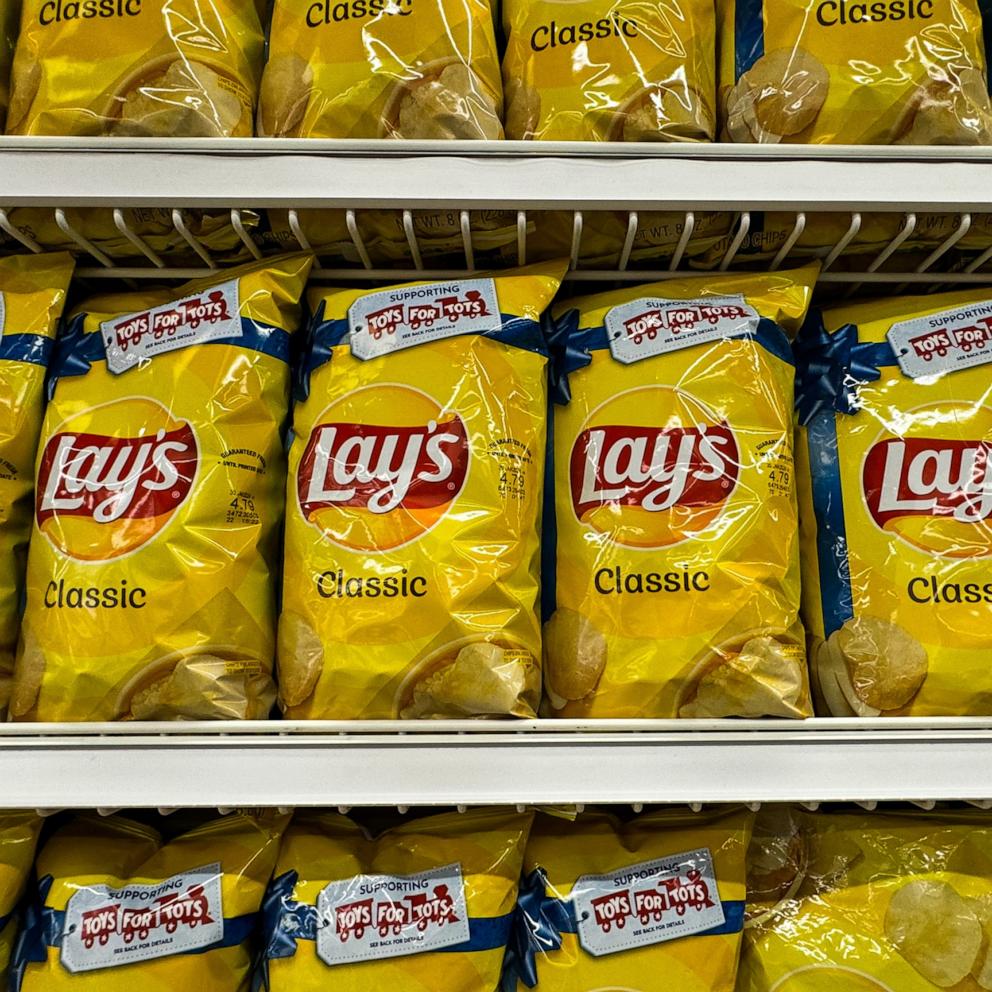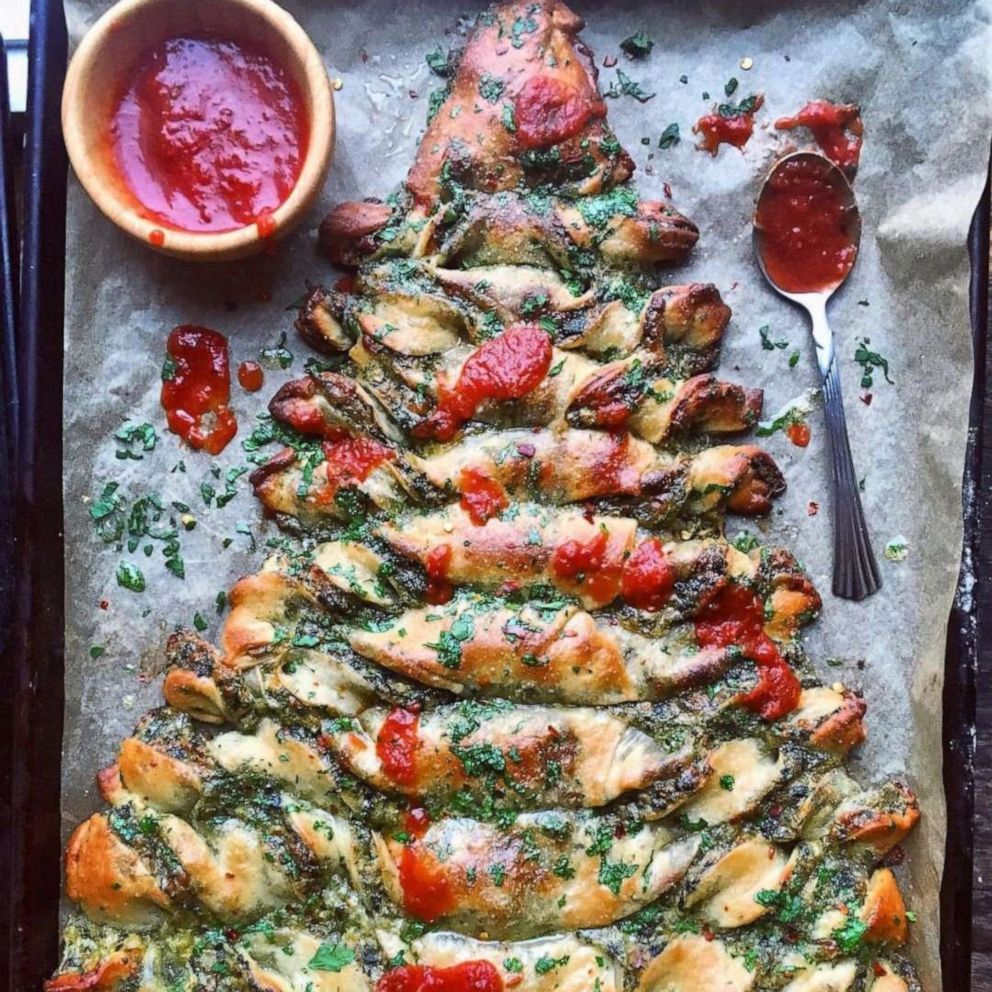Pastry chef stuns with specialty mooncakes for Mid-Autumn Festival

Next to Chinese New Year, Mid-Autumn Festival or Mooncake Festival, is the second-most important holiday in Chinese culture and is celebrated by many Asian countries.
The celebration is centered around the day when the moon is at its fullest and brightest, and encourages family gatherings, feasts, lights and lanterns. But the most symbolic food of the festivities are mooncakes.
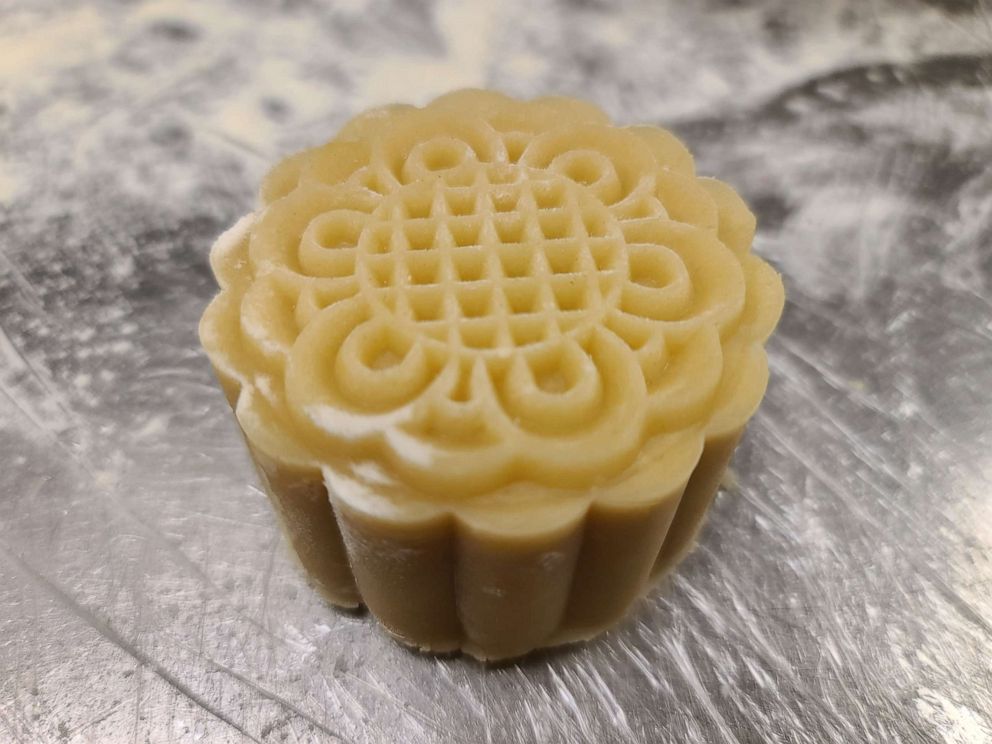
Pastry chef Clarice Lam, whose family is Cantonese and originally from Hong Kong, handmade some special versions of the confections embossed with intricate designs that are traditionally prepared in two styles.
"Making mooncakes is a very labor-intensive process. Because of the special molds, I can only make literally one at a time," Lam told "Good Morning America" of the desserts. "My snowskin dough is made with various rice flours, wheat starch, milk, sugar and soy oil. It's then steamed and kneaded by hand."
The baked variety, she explained, has a sort of sweet crust while the snowskin version is similar to the sweet rice dough of mochi and frozen. Both are typically filled with various seed pastes and sometimes a whole salted duck egg yolk to represent the moon.
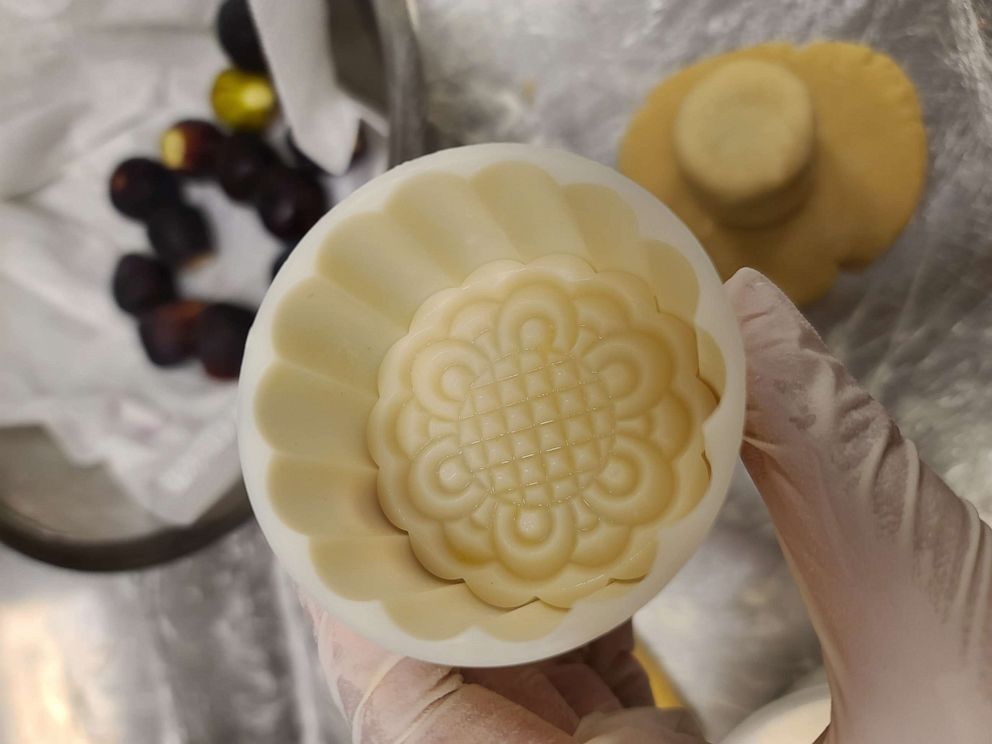
"My sweet baked dough is made with lots of honey so it has a nice crunch and chew," she said.
Lam created three specialty flavors at her restaurant Kimika in collaboration with its sister restaurant, Lotus + Cleaver.
Her first flavor of the snowskin mooncake is made with coconut mochi butter cake, peanuts and crispy chicken skin.
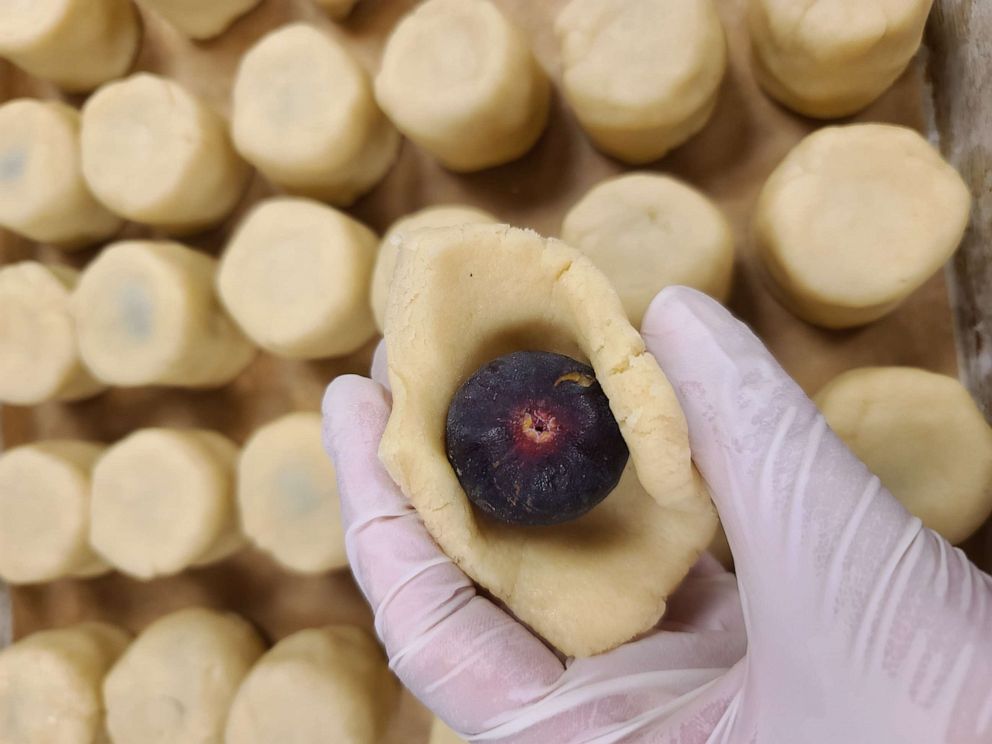
The other snowskin mooncake is filled with mascarpone cream and a strawberry in the center.
Finally, her traditional baked mooncake features a marzipan-enveloped fig.
"Because the process is so labor intensive, most people will buy boxes of mooncakes at the Asian market," Lam said. "Not very many people make it themselves. Even my mom hasn't ever made one. I tried to create something different by using different flavors that you would never find in a store and that also fit in with Kimika."
